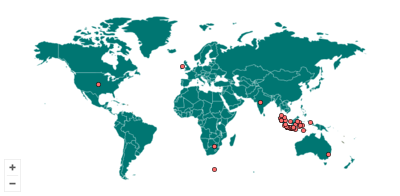NAZHIR'S PERFORMANCE IN THE UTILIZATION AND MANAGEMENT OF WAQF FOR DAYAH OPERATIONS IN PIDIE DISTRICT
DOI:
https://doi.org/10.22373/al-mudharabah.v4i2.5636Keywords:
Aceh, Islamic Economic Law, Management, WaqfAbstract
Waqf plays an important role in the religious, educational, economic and social development of the population. Waqf is an asset donated to humanity for a relatively long period of time. The purpose of this study was to determine the utilization and allocation of the results of waqf management, the contribution of the results of waqf management and the performance of nazhir in waqf management in Pidie sub-district for dayah operations. This study used a qualitative research method with a descriptive approach. The type of data in this study is primary data through the interview method. Data analysis techniques using descriptive analysis. The research results show that the use of waqf proceeds has been put to good use for the needs of the Islamic boarding school and the surrounding community for religious activities. Contributions from the results of waqf management can improve development facilities and infrastructure at dayah. Nazhir's performance in the productive waqf land management system for the operational needs of the dayah is carried out in an agribusiness manner, the waqf land in which there are dayah in Pidie District is mostly used for religious and educational activities. The use of waqf land chosen by Nazhir is by means of an agribusiness approach, namely by cultivating rice planting. The suggestion in this matter is that Nazhir must try to further maximize management by improving the management and financial aspects so that the results from the utilization of waqf land can also be seen to be even better and the role of the government and related agencies must be even greater to encourage the strategies carried out by Nazirs.
Downloads
Published
How to Cite
Issue
Section
License
Copyright (c) 2024 Al-Mudharabah: Jurnal Ekonomi dan Keuangan Syariah

This work is licensed under a Creative Commons Attribution-NonCommercial-ShareAlike 4.0 International License.












